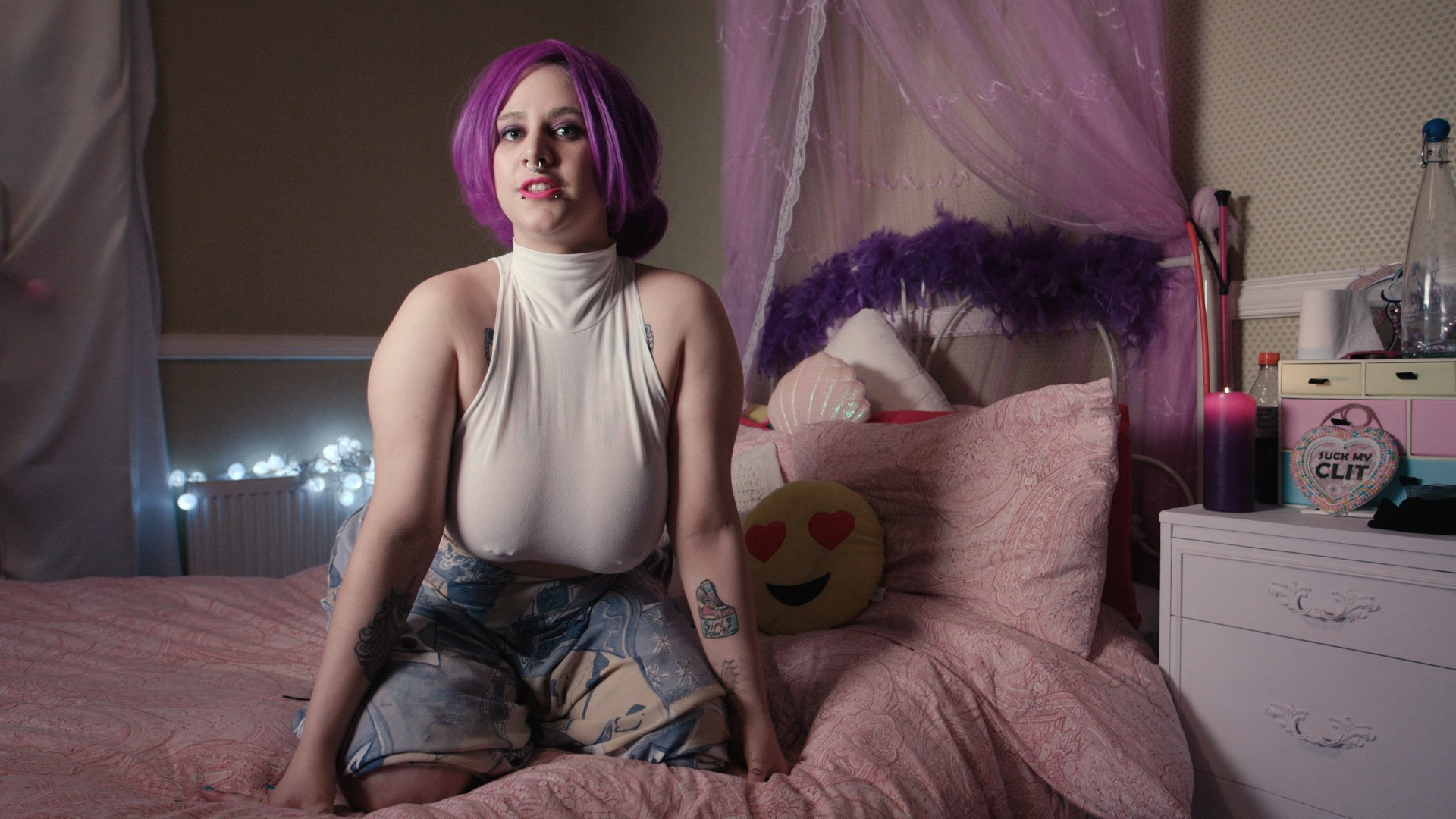(Top photo: Yui Mok/PA Archive/PA Images)Rachel Rossi, a sex worker from Glasgow, cried at work on the morning of the 18th of September, 2014 – when Scotland voted No to Independence the first time around.
"The Yes campaign was about being free from a government we didn't elect. It was about giving disenfranchised people a voice," she says. "And when we lost, I cried. So many of my friends, who'd been disheartened by the whole idea of politics for years, looked as though they had been kicked in the stomach."
Sex workers are often disenfranchised by mainstream politics. They're regularly portrayed in pop culture as helpless female victims exploited and controlled by men. For most politicians, sex work is at best an inconvenient truth, and at worst an active menace.
In theory, it's not illegal to sell sex in Scotland or in England. But, in practice, police hostility means that sex workers – especially migrant sex workers – face habitual state violence. They're often too scared to report sexual assault to the police, for fear they might be arrested or deported, or have their money confiscated.The idea of independence is seductive because it's uncharted territory: a blank canvas on which any number of groups – environmentalists, asylum seekers, sex workers – can project their own radical vision of the future.
WATCH: 10 Questions You've Always Wanted to Ask a Sex Worker
Rachel's a founding member of the campaign group Sex Workers 4 Yes. Their radical vision? That an independent Scotland would decriminalise sex work entirely."More than anything I'd like to be able to share a space with a friend, for company as much as my safety," she says. "As it stands, the law states it would be brothel-keeping, and we could both be arrested. Decriminalisation gives power back to the workers, while criminalisation only empowers the government and the police." The group has two objectives: to persuade sex workers across Scotland to support a Yes vote in the next referendum, and to lobby the SNP to put sex workers' rights on the Independence agenda. On the second point, they may still have some way to go. The SNP's spring conference perfectly illustrated the often awkward collision of the radical visions of independence activists and the left-leaning Holyrood establishment. While the media was focused on a triumphant Nicola Sturgeon telling Theresa May to do one and beating the drums of indyref2, the SNP quietly passed a motion which sought to criminalise the purchase of sex, in a system known as "the Nordic model". The Nordic model – which takes its name from the Scandinavian countries who pioneered the approach – does not, in theory, criminalise the sex worker; only their clients. But sex worker organisations consistently argue that this system actually makes prostitutes' working conditions more dangerous, because they are generally prevented from working in groups for safety.
Advertisement
WATCH: 10 Questions You've Always Wanted to Ask a Sex Worker

Rachel's a founding member of the campaign group Sex Workers 4 Yes. Their radical vision? That an independent Scotland would decriminalise sex work entirely."More than anything I'd like to be able to share a space with a friend, for company as much as my safety," she says. "As it stands, the law states it would be brothel-keeping, and we could both be arrested. Decriminalisation gives power back to the workers, while criminalisation only empowers the government and the police." The group has two objectives: to persuade sex workers across Scotland to support a Yes vote in the next referendum, and to lobby the SNP to put sex workers' rights on the Independence agenda. On the second point, they may still have some way to go. The SNP's spring conference perfectly illustrated the often awkward collision of the radical visions of independence activists and the left-leaning Holyrood establishment. While the media was focused on a triumphant Nicola Sturgeon telling Theresa May to do one and beating the drums of indyref2, the SNP quietly passed a motion which sought to criminalise the purchase of sex, in a system known as "the Nordic model". The Nordic model – which takes its name from the Scandinavian countries who pioneered the approach – does not, in theory, criminalise the sex worker; only their clients. But sex worker organisations consistently argue that this system actually makes prostitutes' working conditions more dangerous, because they are generally prevented from working in groups for safety.
Advertisement
The conference motion denounced all sex work as "a form of violence against women", recycling the tired Victorian trope of the helpless fallen woman, erasing the reality of a diverse sex work community."It was really devastating and frustrating to hear the SNP had backed the Nordic model," says Rachel. "You want to help these poor addled 'prostituted women', who you think are struggling to get their fix? Look at wider society. It's ugly as fuck. Pushing a group further into the shadows, further into poverty, isn't going to change anything."The number of people working in the sex industry has increased since 2010, as austerity policies like benefit sanctions pushed more people into poverty. Sex work is an austerity issue, which is one reason why the anti-austerity Independence message resonates so strongly with sex workers.Rachel is very clear: "One thing you hear a lot in Scotland is that a vote for Yes isn't necessarily a vote for the SNP, which I don't think people in England realise. Smaller groups can put pressure on the SNP to change things – we've seen that with the Green Party working with them in Holyrood. And also groups like ourselves, who are often shouted down, we're meeting with politicians to get our voices heard." It's estimated that there are between 50,000 and 80,00 sex workers in the UK: of this number, nearly a third are migrants, and many of these are EU nationals. Remaining part of Europe is another red line for Sex Workers for Yes."Migrant workers are really fearful after Brexit, because of the uncertainty of what will happen to them over the next two years," says Rachel. "If we voted so strongly to remain – as Scottish voters but also as sex workers – then surely that's something we should have a choice about."In 1983, the English Collective of Prostitutes occupied a church in North London to protest police brutality against sex workers. In her account of the occupation, the activist Selma James wrote: "Our prejudices can reinforce the hierarchy of whose struggle is valid and central and whose is unworthy and marginal: who are 'real' women and 'real' workers, and who are not." In the coming months, Sex Workers 4 Yes are going to fight against anti-sex work prejudice for their struggle to be central to an independent Scotland. They're going to forcibly write themselves into narratives of Scottish utopias, whether the SNP like it or not.@Niamh_Mcintrye"You want to help these poor addled 'prostituted women', who you think are struggling to get their fix? Look at wider society. It's ugly as fuck. Pushing a group further into the shadows, further into poverty, isn't going to change anything."
